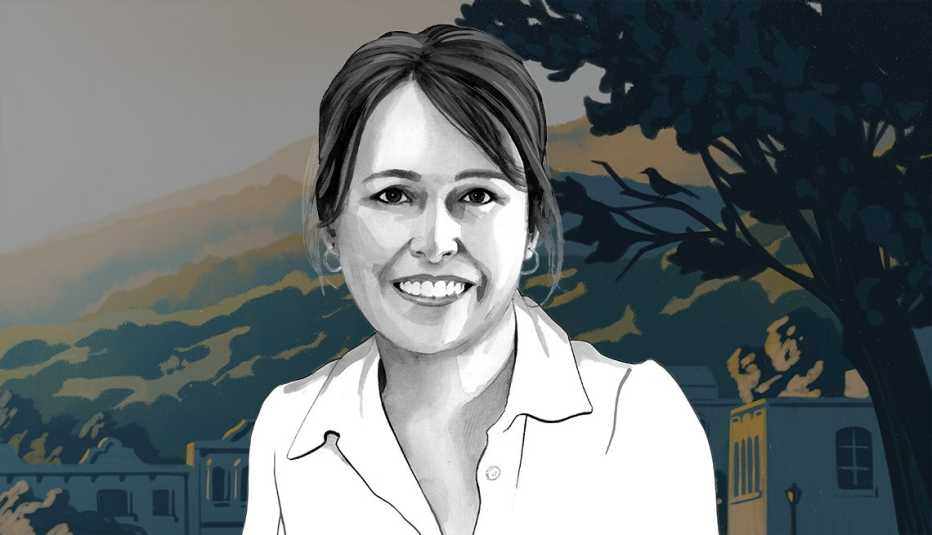Staying Fit


Best-selling author Heather Webber’s first trip to Alabama involved a bit of serendipity — or, as she likes to call it, “Southern magic.”
It was February 2007, and after another author had to cancel, Webber — who was raised in Massachusetts and now lives in Ohio — was invited as a last-minute fill-in for two book events, one in Birmingham and one in Wetumpka. Somewhere during the hour-and-a-half drive from one location to the other, through the small towns, past the old farmhouses and new developments, past the sky-high pine trees and kudzu vines, she bonded with the state. “This was a place that felt strangely like home,” she says. “When I realized it wasn’t possible for my family to move south, I decided I could travel there as often as I wanted — through my books.”


AARP Membership— $12 for your first year when you sign up for Automatic Renewal
Get instant access to members-only products and hundreds of discounts, a free second membership, and a subscription to AARP the Magazine.
Midnight at the Blackbird Café is one of those books. A blend of sweet romance and small-town Southern charm, the novel takes place in the fictional little town of Wicklow, nestled in the mountain shadows of Alabama, which is where Anna Kate has come to bury her beloved Granny Zee, owner of the Blackbird Café. Anna Kate’s trip was supposed to be quick — to close the café and settle her grandmother’s estate — but despite her best intentions to avoid forming ties or getting to know her father’s side of the family, she finds herself drawn to the quirky Southern town her mother ran away from so many years ago and its mysterious blackbird pie.
Webber’s love of Alabama aside, it was the Beatles song “Blackbird” that inspired her to write this particular book. Years ago, she became obsessed with the song and played it on repeat. “When that kind of thing happens, the writer in me pays attention, trying to figure out why it’s resonating so deeply,” she says. Webber was especially drawn to the lyrics about blackbirds singing in the dead of night, and about broken wings and learning to fly, so she started to brainstorm the many ways characters could be broken and what could help them heal.
Her blackbird research led to “Sing a Song of Sixpence” with its “four and twenty blackbirds baked in a pie,” and then a tidbit in Celtic folklore that revealed that blackbirds were considered guardians and messengers of other worlds. “With all that,” she says, “the heart of Midnight at the Blackbird Café took shape. What if blackbirds with their songs could pass messages from dearly departed loved ones through, of all things, pie, to bring solace and love to those left behind?”
“As an author, I enjoy navigating family ties, examining the strong threads that hold families together, or piecing back together the strings that have frayed or snapped.”
Midnight at the Blackbird Café falls under the genre of “magical realism,” which is a little different from fantasy or paranormal novels in that the magic of the story doesn’t need to be explained, Webber notes. It just is. “Roald Dahl said, ‘Those who don’t believe in magic will never find it,’” she says. “I see magic everywhere. I see magic in the flutter of a bee’s wings. In an act of kindness. In the veining of a leaf. In an artist’s hands. I’m also a big believer in everyday magic — the type you feel but don’t necessarily see, and it’s that kind of magic that I tend to write about most.”
Webber also tends to write about small towns; many of her 30-plus books take place in them. “Since conflict drives a story,” she says, “small towns offer wonderful ways to stir the pot. Most are places where everyone knows everything about each other. It’s hard to keep secrets, and there’s little to no anonymity. Nosiness and gossip know no bounds.”
Conversely, she adds, small towns can rally, support and come together in a crisis. When the novel begins, Wicklow, a former artist’s colony, is a bit broken and in need of healing, and its residents come to its rescue. “It’s truly uplifting and heartwarming to witness the love and care shown for neighbors in a time of need,” Webber says.


































































More From AARP
Free Books for Your Reading Pleasure
Gripping mysteries and other novels by popular authors available in their entirety online for AARP members